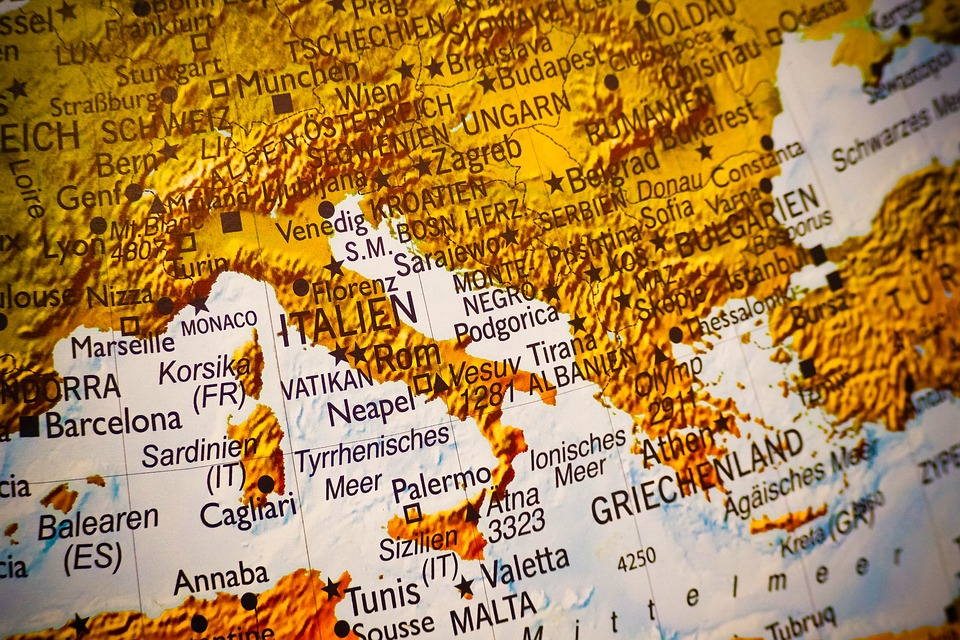As Ines Sabalic/Poslovni Dnevnik writes, Austria will not prevent Croatian Schengen membership from going ahead, and neither will Sweden, which had also threatened to do so in the past. But Germany could.
There is a high chance that Croatian Schengen entry will go ahead without much fuss, but a last-minute issue is also possible. At the moment, in all the Schengen capitals that are being asked about Schengen, Zagreb, the responses are positive to Croatian entry. However, it’s not over yet, because there can be unpleasant surprises where you least expect it, and some last minute problems, so we’ve heard, do indeed exist.
Schengen is much more than free border crossings and data exchanges, which, along with Eurozone entry in January 2023, is a question of confirming political identity for Croatia. For large member states and countries close to the center of the EU, identity is self-evident. For the Scandinavians, the EU is a rational choice. The British refused it for a multitude of reasons. It is crucial for Croatia and this confirmation would have a beneficial effect.
Over in Germany, a key part of the ruling coalition is the Greens (Bündnis 90/Die Grunen), and their reaction to Croatian Schengen plans is unpredictable. If they decide to make a fuss at the last minute, Scholz’s government and Interior Minister Nancy Faeser will not be able to support Croatia’s entry. It’s more than likely that everything will be fine, but it ain’t over until the fat lady sings, as they say in Britain.
Previous negative indications from some countries to Croatian Schengen entry were motivated by internal political demands and disagreements. An example of that can be found in Sweden, where two completely different parties, the Swedish Democrats, and the Social Democrats, demanded all three countries (Croatia, Bulgaria and Romania) be stopped form enteting. The far-right Sweden Democrats are against it, and the Social Democrats ask “What benefit does Sweden have from the entry of Croatia into Schengen?”. At the same time, Ylva Johansson, Commissioner of the European Commission (EC) for Internal Affairs, whose responsibility includes Schengen, is a Swedish socialist herself.
As things stand now, the problem with the Swedes has been solved, that is, Sweden confirmed once again in Brussels that it will give passage to Croatian Schengen entry without causing any issues along the way.
The same is true in nearby Austria, despite recent issues the media has cited. There, the party in power, the OVP, is nervous because the public’s trust in the party’s good handling of the migrant issue has long-since dried up, and nostalgia has grown (according to polls reported by Der Standard) for Sebastian Kurtz, who advocated a hard-line migration policy for Austria. The threats against Croatian Schengen entry were aimed at increasing and consolidating support among VP voters, but the main issue is, as stated, Schengen itself, and not merely Croatia entering it.
The main reason for the increased number of migrants in Austria is that people simply come, pass through Greece, Bulgaria, Romania, Hungary and Croatia, and are directed to the northwest, towards “real” Europe. Many member states, such as Austria in this case, probably imagine Croatia as a kind of European Union military frontier, a border area that was once defined by Maria Theresa as a defense zone against the expansion of Turkey, and which later grew into a Habsburg war province.
Quite simply, the Austrians want fewer migrants or at least effective control of who enters and when. Their issue is with Schengen simply ”not working”, to quote one Austrian minister. At the same time, in these same member states, coalition or opposition parties on the left demand respect for the human rights of migrants.
The parties of the left, and especially the Greens, also understand the border areas in a better way, and what they demand is an individualised approach to migrants, so that one of the fundamental values on which civilisation rests, namely respect for human rights, is not compromised. Recently, the Greens in the European Parliament also voted in favour of admitting Croatia to Schengen, because the argument of the right to enter, and for equal rights for all, prevailed in the end.
At the same time, many MEPs, and especially the German Greens, continue to show great dissatisfaction with the violation of human rights at the borders. There, the petition “Europe, stop paying for pushback” was recently launched, in which, along with Croatia, Greece, Italy, Hungary, Lithuania, Malta, Poland, Spain and Slovenia are all criticised for being verbally and physically violent towards potential asylum seekers, and resorting to violent measures of rejection (pushbacks).
The Greens are a complex party, and the only one among the major parties in all of the European Union that has a deeply idealistic vision, which is largely channeled into mainstream politics, and a smaller but highly visible part into activist actions.
The lens through which these two opposing political formations see the incidents at the European Union’s external borders with migrants is different. The only thing in common is that both are dissatisfied with the European Commission. Some, like the OVP, and we’ve seen this from the remarks made by the Austrian Minister of the Interior Karner, criticise the too lenient approach of the Commission regarding the asylum policy and Schengen, while the German Greens criticize Frontex, the European agency that is at the external borders and helps the national border police in their work.
These members are dissatisfied, they want something from Greece, which they constantly criticise, and also from Croatia, which would like to enter Schengen, but what do they want exactly? What kind of border area should Croatia be? Should there be a military landscape at all? Nobody seems to have much of an idea. However, it will be necessary to have a long, hard think about what the Croatian borders, the EU’s external ones, will look like following Schengen entry in 2023.
For more, make sure to keep up with our news and politics sections.








